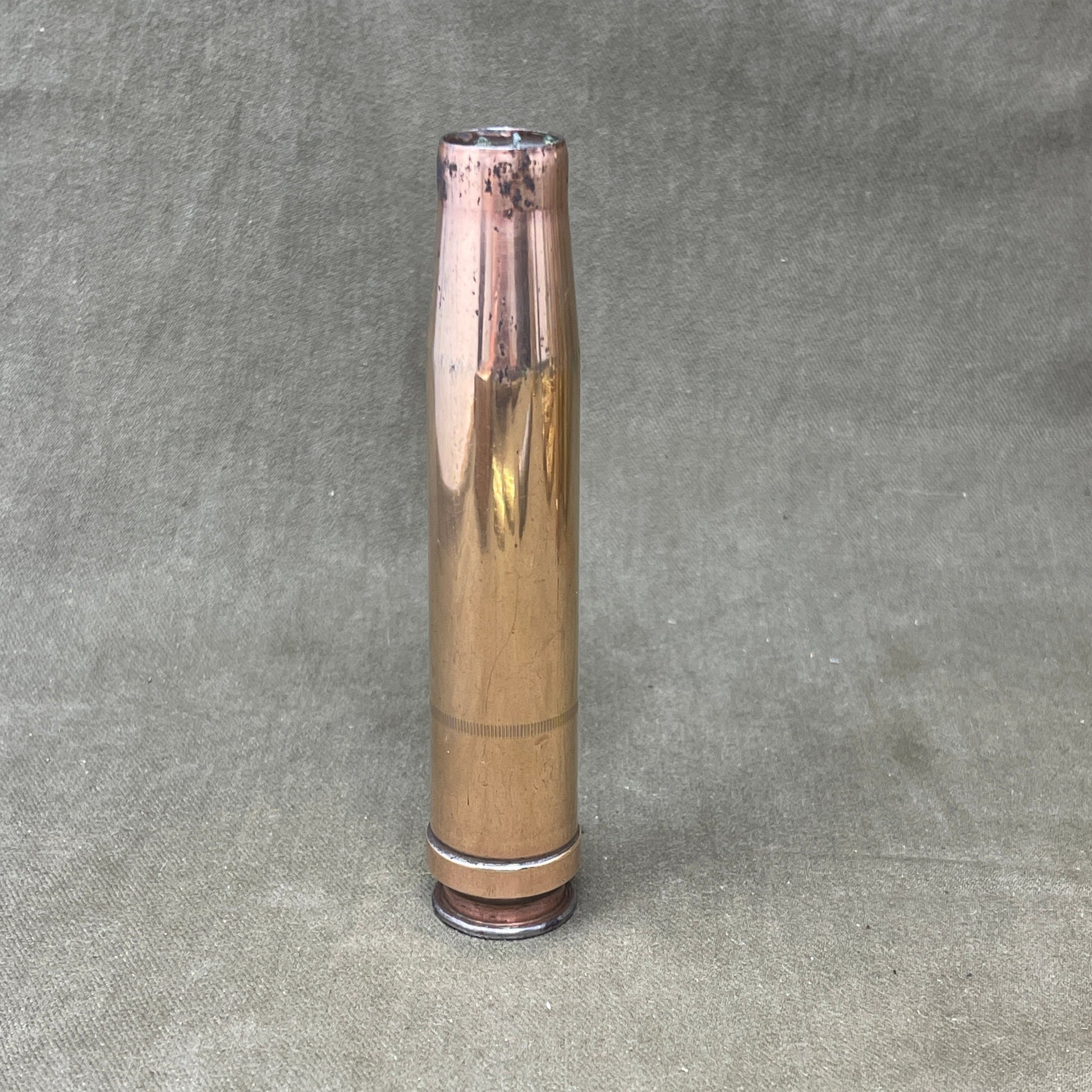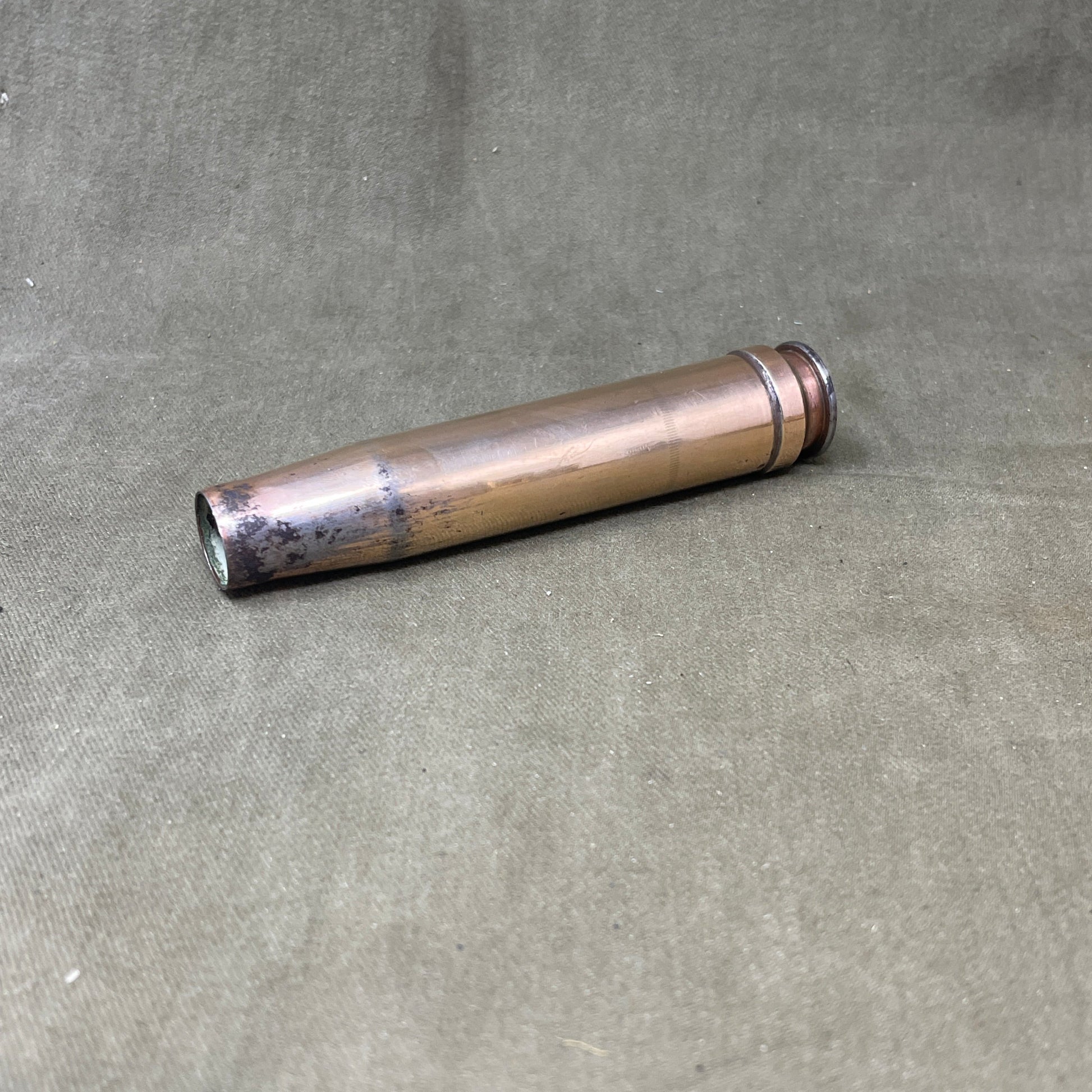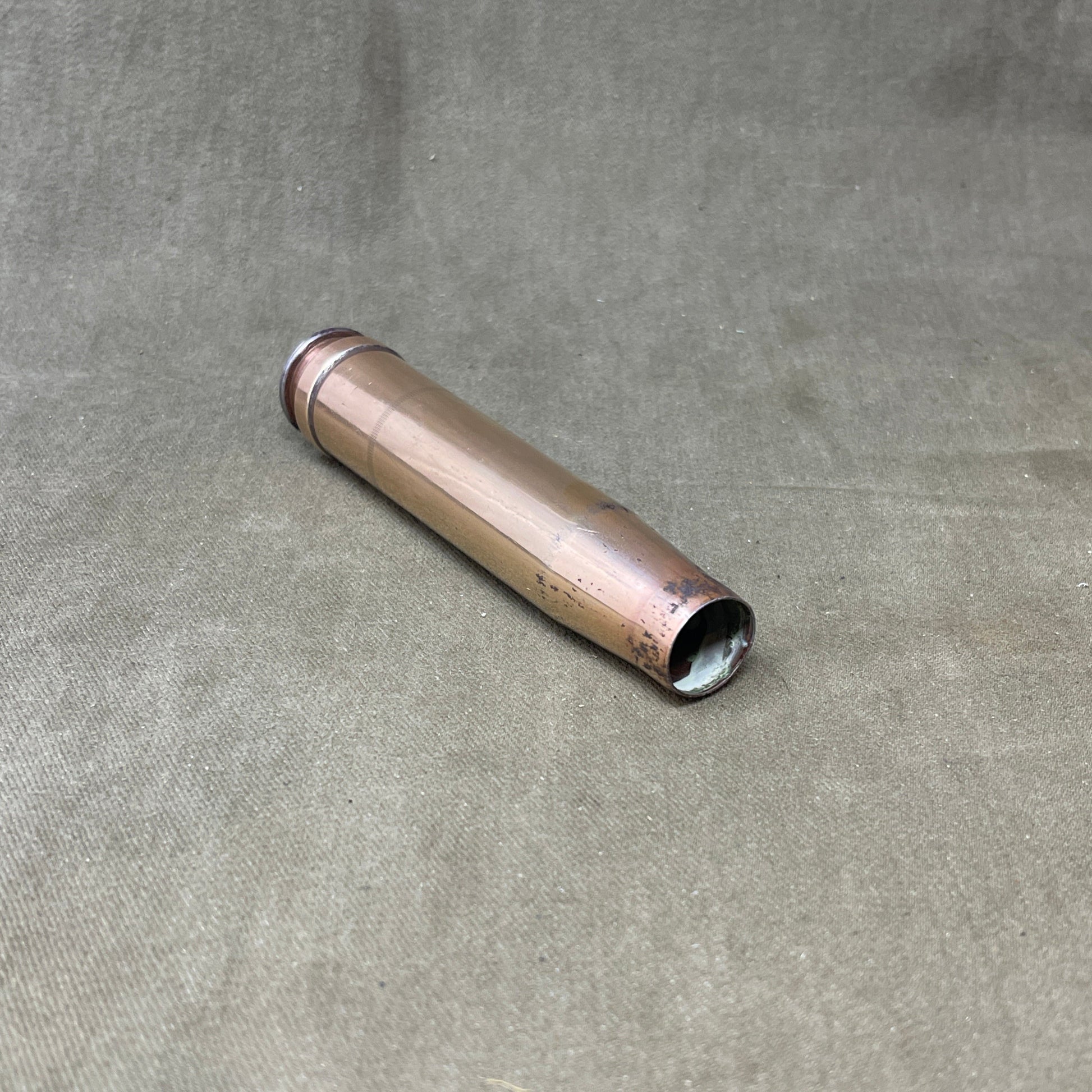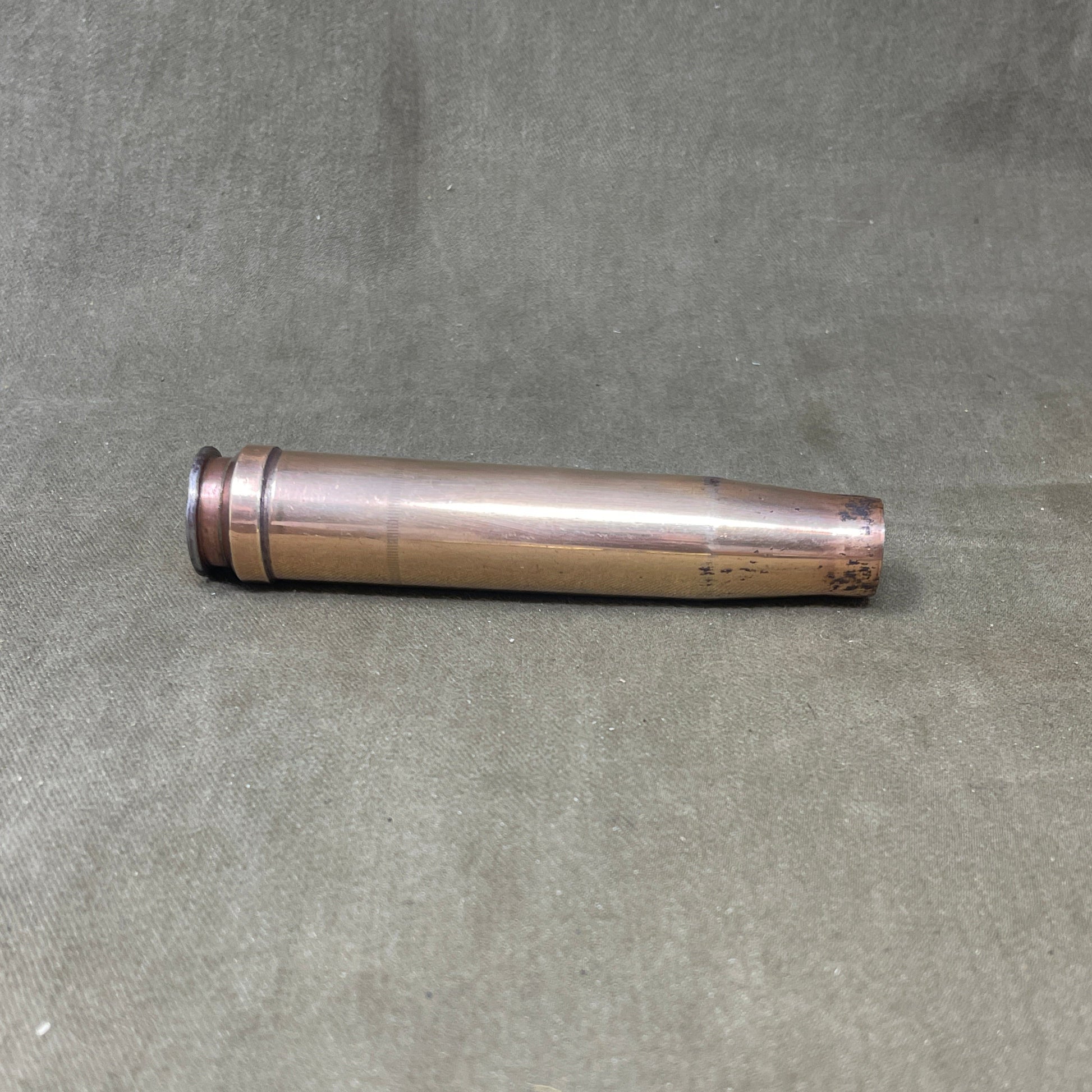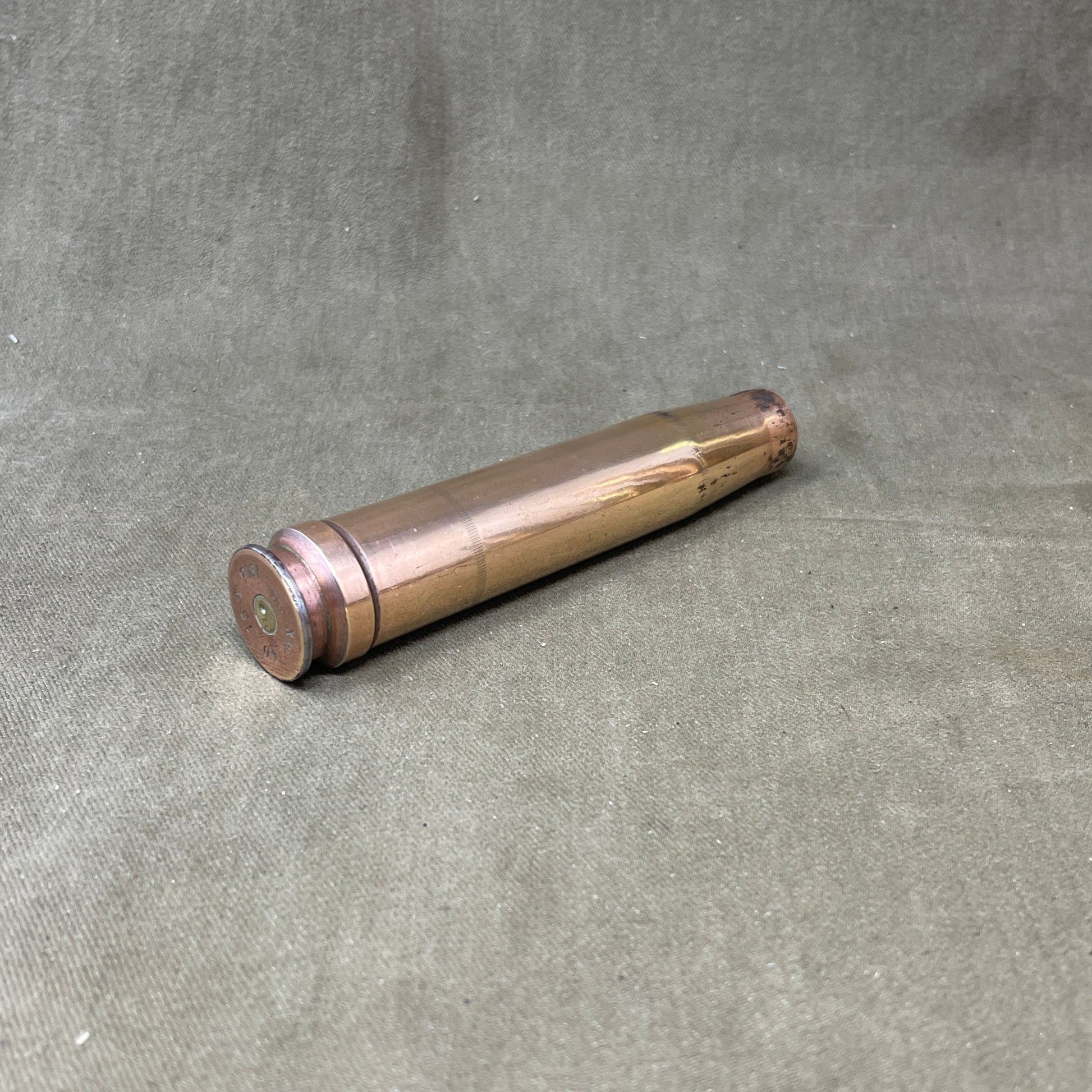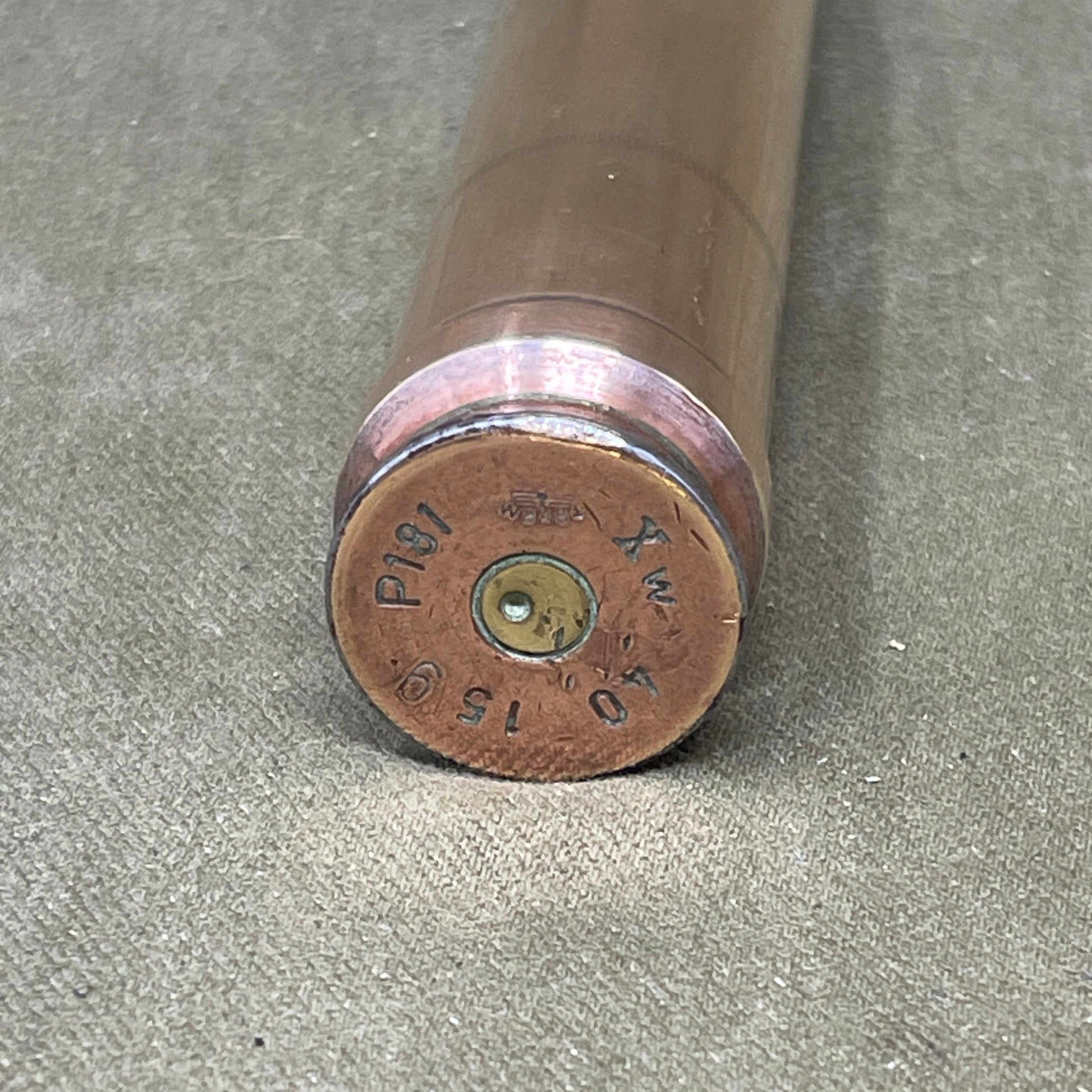Tommies Militaria and Collectables
WW2, German, 3.7cm Shell and Flak 18 Shell Casing. Dated 1940
WW2, German, 3.7cm Shell and Flak 18 Shell Casing. Dated 1940
Couldn't load pickup availability

Product Condition
Product Condition
Shipping & Returns
Shipping & Returns
Shipping
All orders are subject to a delivery, packing & handling charge. The correct charges will be automatically calculated via our Shopping basket ordering system and are based on the total weight of your order, your location, and our normal method of despatch. Please be aware that we reserve the right to alter any miscalculation, plus or minus, and you will be notified prior to shipping of any changes.
When shipping items, we use the UK Royal Mail, EVRI, DPD and Parcel Force in the event of a parcel arriving with contents damaged ALL the packaging must be kept for inspection by the delivering shipping contractor whoever that contractor is, failure to adhere to this WILL result in ANY claim being denied.
We do ship internationally and will always use a Tracked and Signed for service. We strive to use the best and most economical shipping services available
All shipping, insurance and import charges will be borne by the customer.
All lots are shipped at the buyers risk no compensation will be offered for items lost or broken in transit. Alternatively you can pay for your own courier.
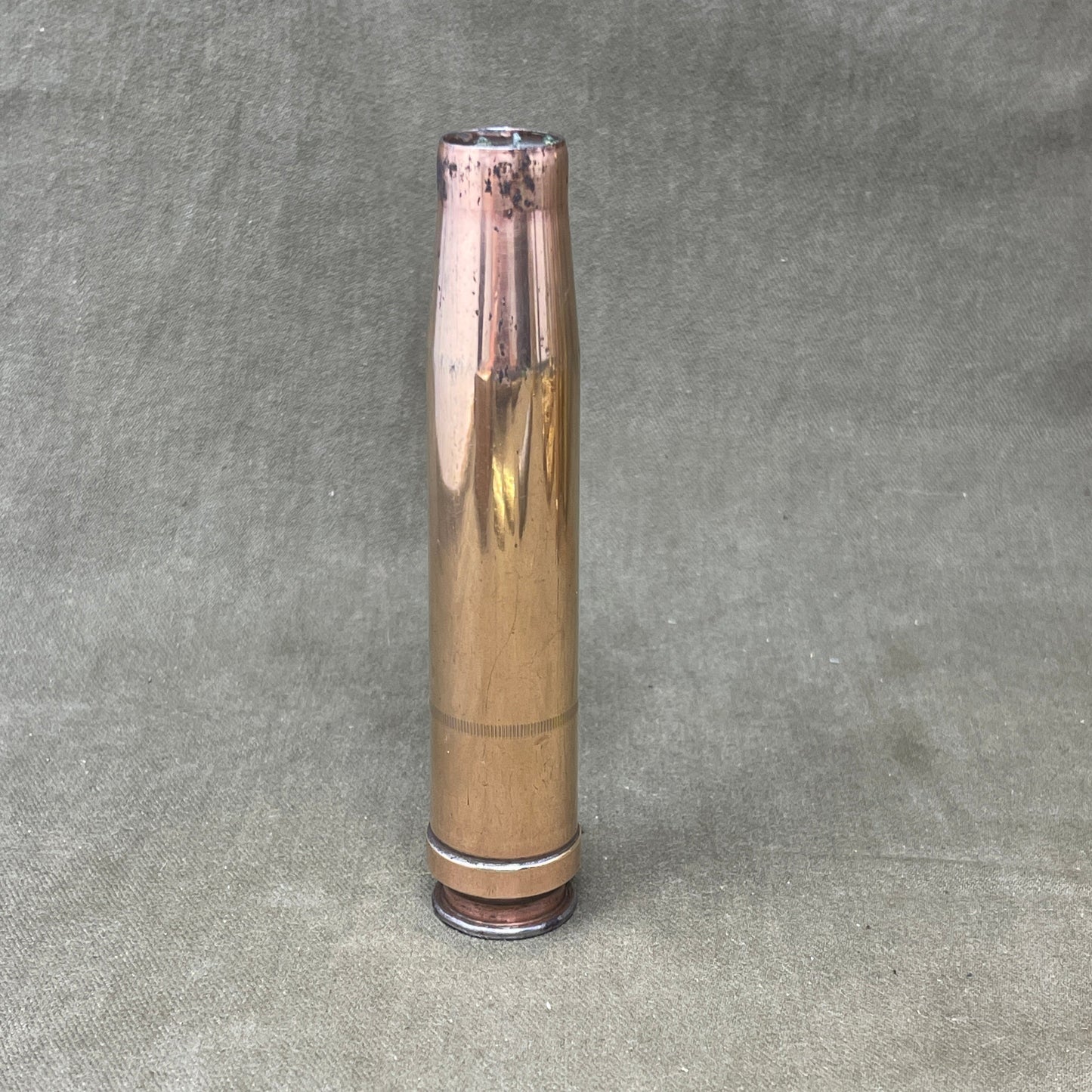
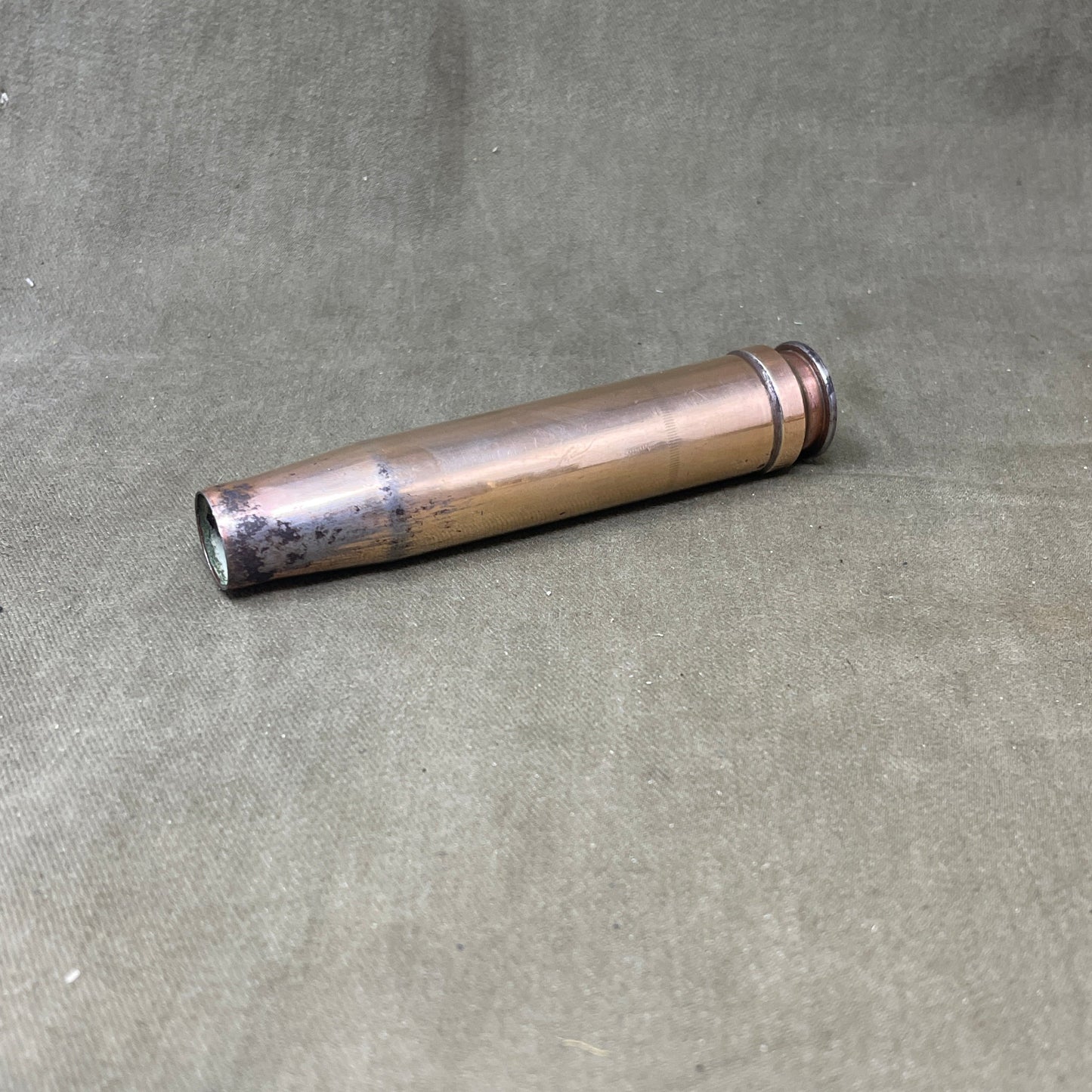
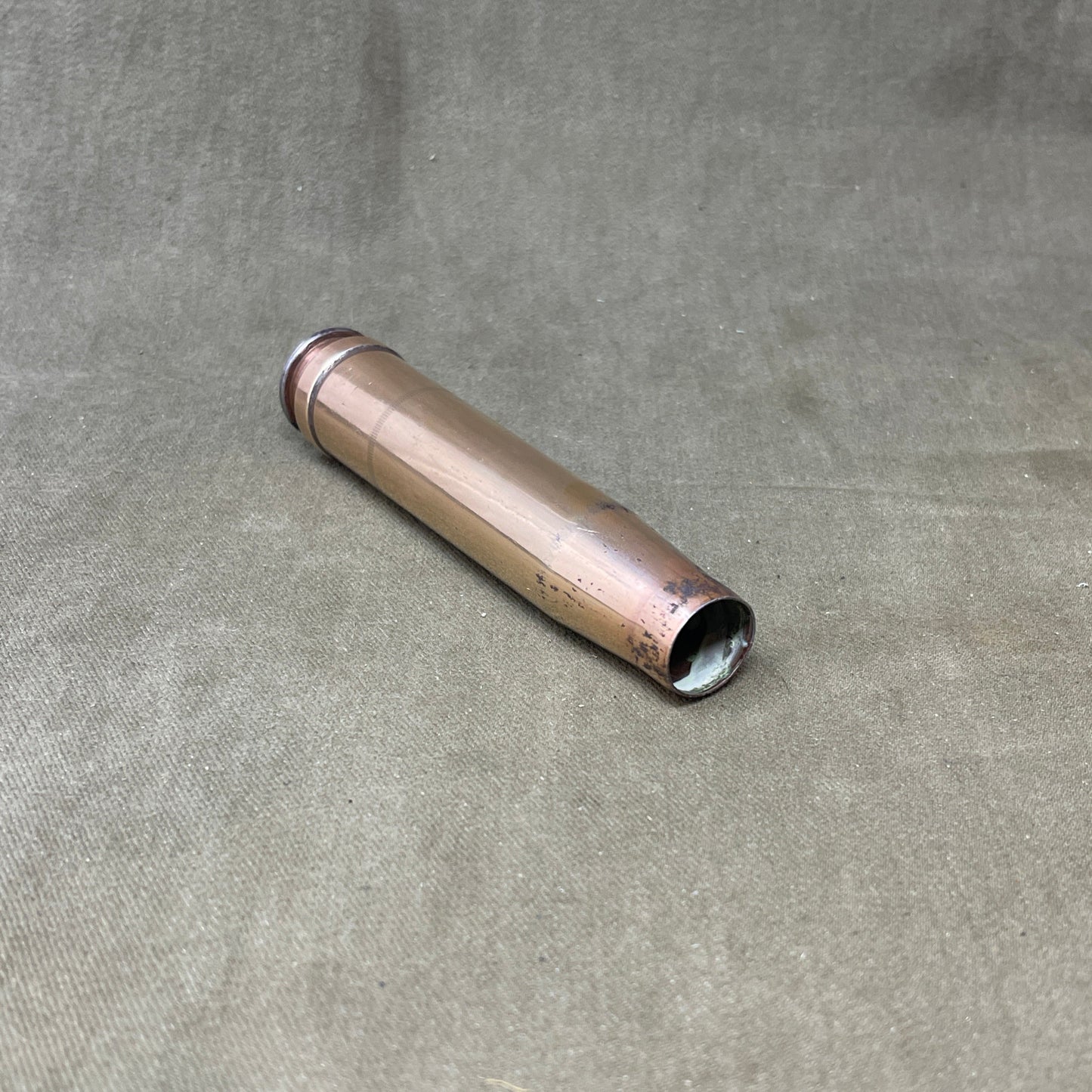
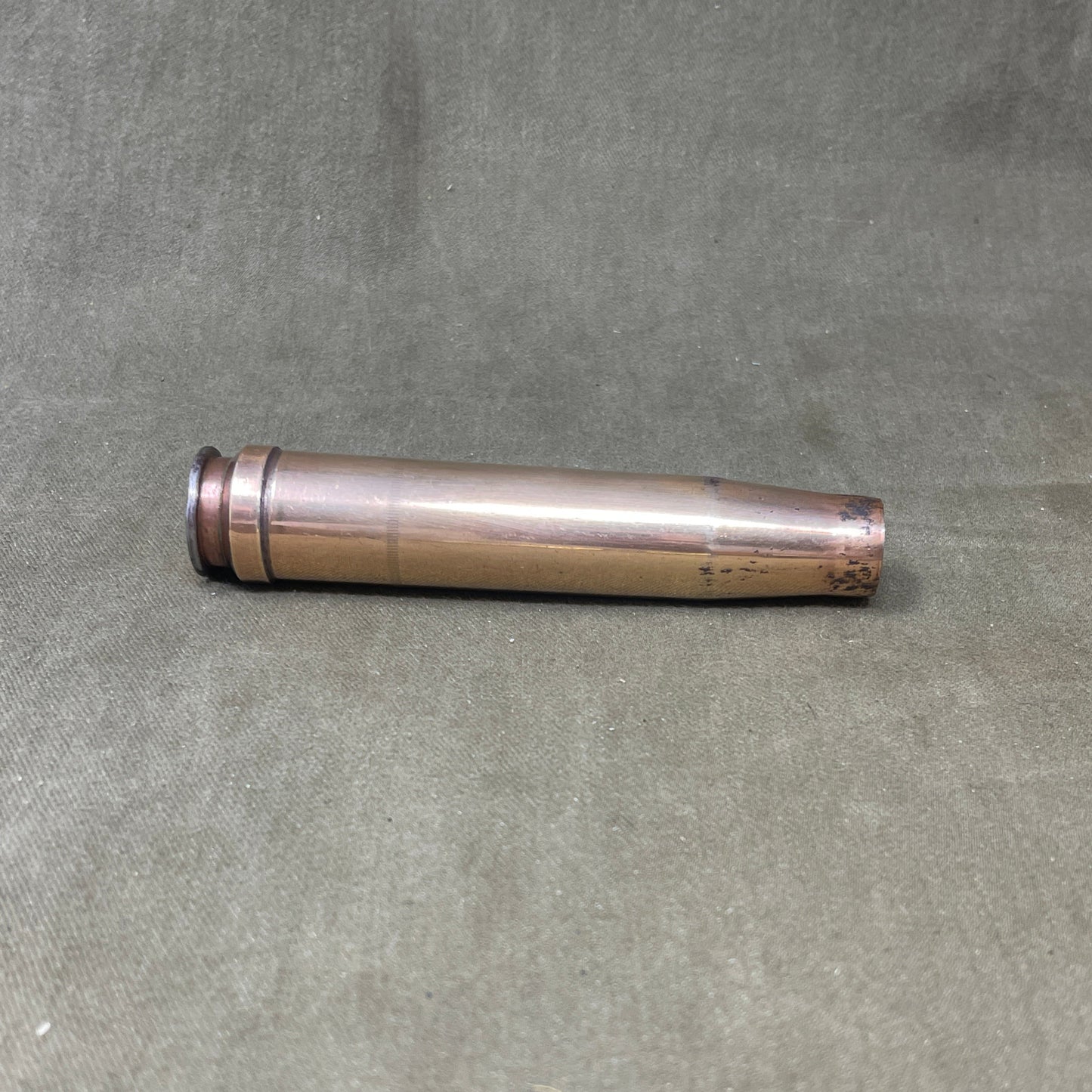
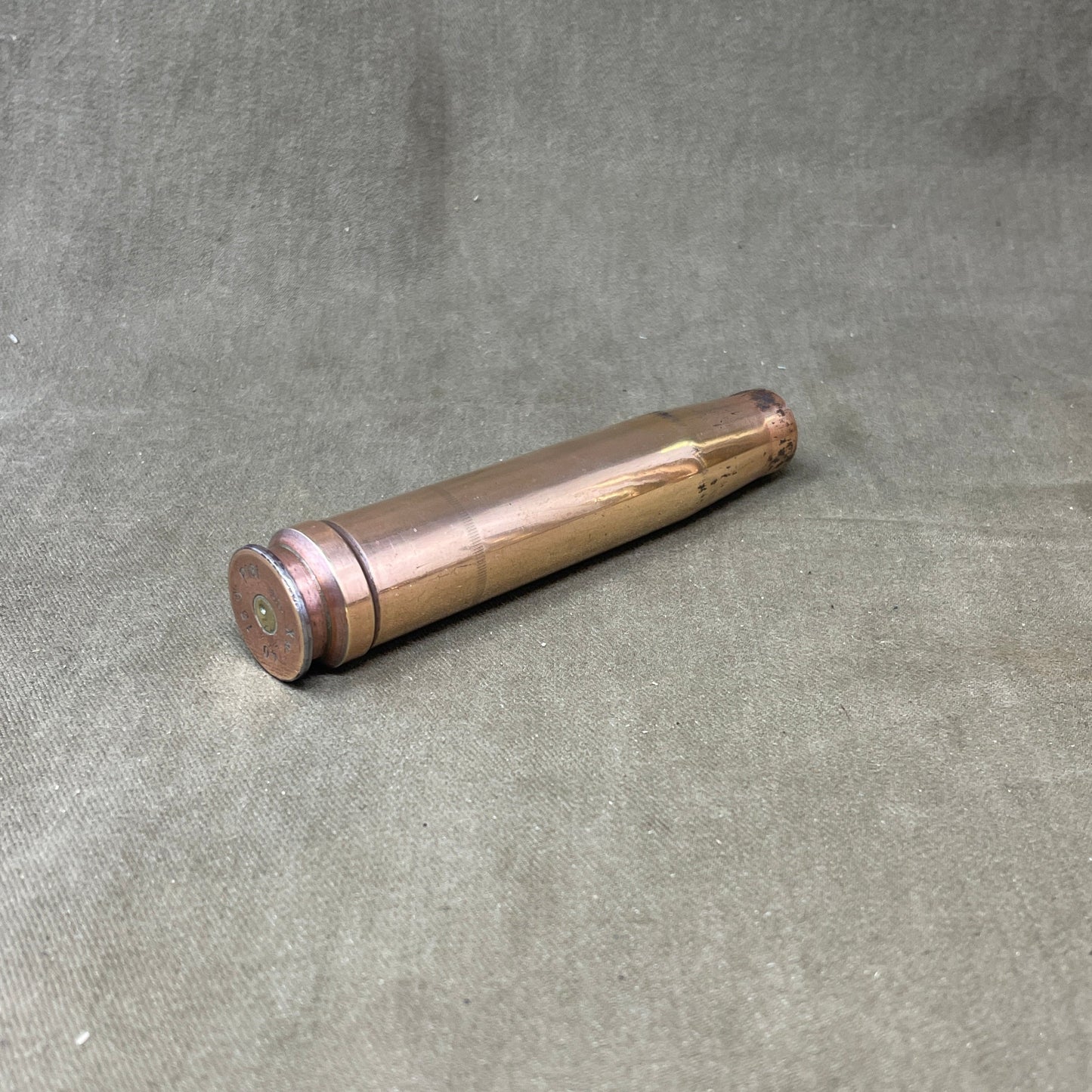
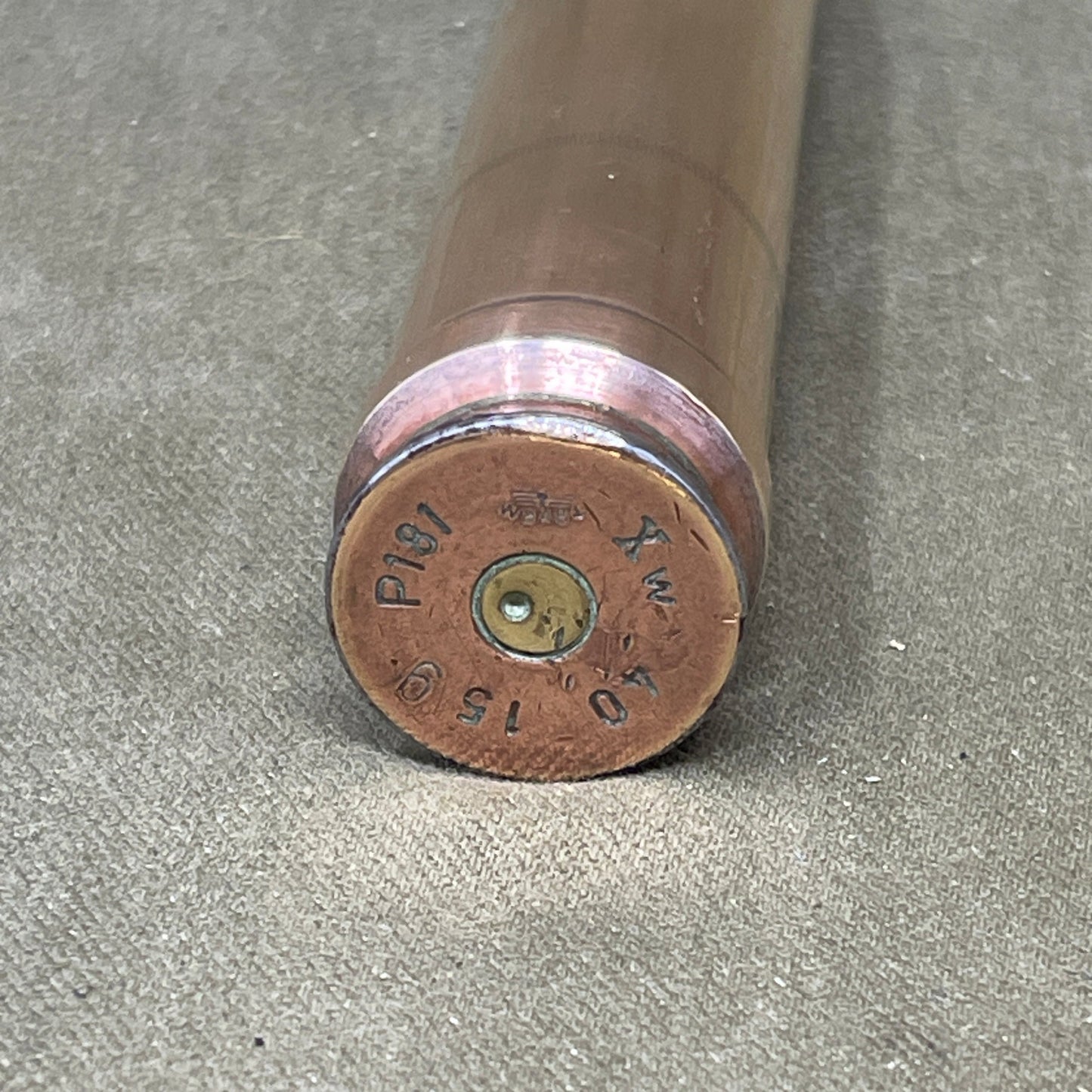
Product Description
The 3.7cm Flak 18 shell casing, dating back to 1940, was a key component of Germany's anti-aircraft arsenal during World War II. The Flak 18 was a 3.7 cm anti-aircraft cannon designed to target enemy aircraft, with its shells capable of reaching high altitudes with precision.
Each shell consisted of a high-explosive projectile and a brass casing marked with details such as the manufacturing date, place of production, and type of round. The 3.7cm rounds were approximately 37x263B in size, with the "B" denoting the belt at the base of the casing for better extraction from the gun's chamber. These rounds were designed to provide a balance of range and firepower, crucial for intercepting fast-moving aircraft.
The Flak 18 gun and its ammunition were renowned for their reliability and effectiveness in the field. The shell casing from this era serves as a testament to the technological advancements of German engineering and the emphasis on rapid-fire anti-aircraft capabilities during the war. Today, these shell casings are often collected as historical artifacts, offering a glimpse into the technological aspects of wartime strategy and the evolution of anti-aircraft weaponry in the early 20th century

